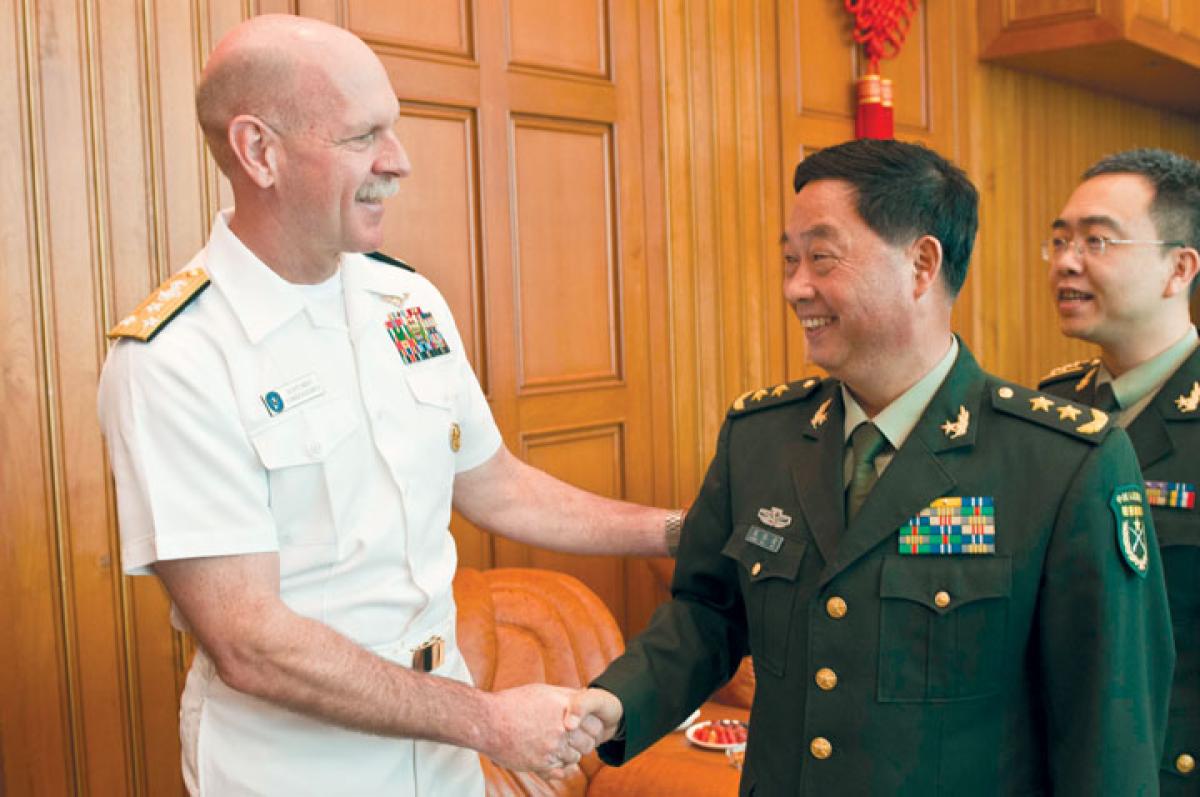In Proceedings’ April “Now Hear This,” Navy Lieutenant Commander Rachel Gosnell and Marine Second Lieutenant Michael Orzetti argue that “the possibility of great-power war [between the United States and China] cannot be ruled out.” However, despite China’s rise, which potentially threatens to alter international polarity, a preponderance of evidence suggests that the era of conventional large-scale war may be behind us.
For the purposes of my argument, the United States and China are defined as “great powers” because they have stable governments and large populations; influential economies and access to raw materials; professional militaries and a nuclear arsenal. Prussian war theorist Carl von Clausewitz’s “trinity,” which characterizes the interrelationship between the government (politics), people (society and the economy), and the military (in modern terms, deterrence and security), is useful to frame this debate.
The 20th century brought seismic shifts as the global political system transitioned from being multipolar during the first 40 years to bipolar during the Cold War before emerging as the American-led, unipolar international order we know today. These changes notwithstanding, major world powers have been at peace for nearly seven decades—the longest such period since the 1648 Treaty of Westphalia codified the sovereign nation-state.
Whereas in years past, when nations allied with their neighbors in ephemeral bonds of convenience, today’s global politics are tempered by permanent international organizations, regional military alliances, and formal economic partnerships. Thanks in large part to the prevalence of liberal democracies, these groups are able to moderate international disputes and provide forums for nations to air grievances, assuage security concerns, and negotiate settlements—thereby making war a distant (and distasteful) option. As a result, China (and any other global power) has much to lose by flouting international opinion, as evidenced by its advocacy of the recent Syrian uprising, which has drawn widespread condemnation.
In addition to geopolitical and diplomacy issues, globalization continues to transform the world. This interdependence has blurred the lines between economic security and physical security. Increasingly, great-power interests demand cooperation rather than conflict. To that end, maritime nations such as the United States and China desire open sea lines of communication and protected trade routes, a common security challenge that could bring these powers together, rather than drive them apart (witness China’s response to the issue of piracy in its backyard). Facing these security tasks cooperatively is both mutually advantageous and common sense.
Democratic Peace Theory—championed by Thomas Paine and international relations theorists such as New York Times columnist Thomas Friedman—presumes that great-power war will likely occur between a democratic and non-democratic state. However, as information flows freely and people find outlets for and access to new ideas, authoritarian leaders will find it harder to cultivate popular support for total war—an argument advanced by philosopher Immanuel Kant in his 1795 essay “Perpetual Peace.”
Consider, for example, China’s unceasing attempts to control Internet access. The 2011 Arab Spring demonstrated that organized opposition to unpopular despotic rule has begun to reshape the political order, a change galvanized largely by social media. Moreover, few would argue that China today is not socially more liberal, economically more capitalistic, and governmentally more inclusive than during Mao Tse-tung’s regime. As these trends continue, nations will find large-scale conflict increasingly disagreeable.
In terms of the military, ongoing fiscal constraints and socio-economic problems likely will marginalize defense issues. All the more reason why great powers will find it mutually beneficial to work together to find solutions to common security problems, such as countering drug smuggling, piracy, climate change, human trafficking, and terrorism—missions that Admiral Robert F. Willard, former Commander, U.S. Pacific Command, called “deterrence and reassurance.”
As the Cold War demonstrated, nuclear weapons are a formidable deterrent against unlimited war. They make conflict irrational; in other words, the concept of mutually assured destruction—however unpalatable—actually had a stabilizing effect on both national behaviors and nuclear policies for decades. These tools thus render great-power war infinitely less likely by guaranteeing catastrophic results for both sides. As Bob Dylan warned, “When you ain’t got nothing, you ain’t got nothing to lose.”
Great-power war is not an end in itself, but rather a way for nations to achieve their strategic aims. In the current security environment, such a war is equal parts costly, counterproductive, archaic, and improbable.



